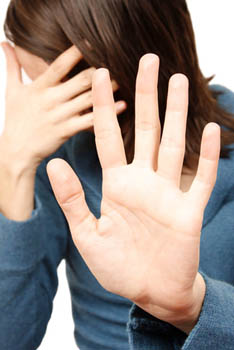Why Avoiding Reality Is a Dangerous Coping Skill

Avoidance of reality is the easiest, isn’t it? Today, we can access cheap alcohol, endless mind-numbing activities, and credit cards without much trouble. We can drown ourselves in all of it if we want to. But it’s dangerous to avoid reality.
For those of us who are hurting, what we want is to be sedated—or shielded from reality.
My Avoidance of Reality
This is what I’ve done. I’ve sedated myself using all the above ways, excessively. For years, I never wanted to think about it.
For a large part of my 20s, I suffered from depression. I was part of an unhealthy family relationship that I couldn’t break free from. I had severe social anxiety at work. There were crying spells that would go on for hours, and sadly, much more.
My mother always had a temperament that was unpredictable, so it was hard to prepare. She was extremely high and low (something I would eventually learn was a mental illness).
One second she’d be telling me to have fun at my cousin’s house, and the next she’d be banging on my door, screaming, and throwing things because I wouldn’t visit a relative of hers.
But the next day, like clockwork, she’d put on a great face and we’d pretend nothing happened.
 What I’ve always said about my life growing up was I always felt like the roof could explode at any minute.
What I’ve always said about my life growing up was I always felt like the roof could explode at any minute.
I avoided the reality of my circumstances: the control, the things that were said, and the things that were done to me.
And I got tired. I gave in. And that resignation led to avoidance.
And I’ve learned avoidance is dangerous.
I swept everything under the rug, until I tripped over the rug, hard.
Avoiding reality turned into depression, anxiety and suicidal ideation, which I could not ignore. I began therapy at the beginning of 2013. I felt weak because I was living without boundaries and without self-respect.
Talking about Avoiding Reality Helps
Talking about it (the hardest part) or writing blog posts require me to revisit the past. And it has made a world of difference since my avoidant days, where I hoped I would just forget, entirely.
Examining abuse or trauma of any kind is part of the healing process. You understand the origins of present behaviors, see cycles of abuse, and pinpoint triggers.
When we avoid, we live on a repeat loop, until we hit a wall—or trip over a rug.
Every time I write a post based on my darker days, my eyes burn, my stomach bottoms out, and this gross feeling washes over me. I cry and want to break things—without fail.
And that’s when I know I’m on the right track. I’m purging that toxicity.
Avoidance of reality may be dangerous but I’m facing all of it, head on.
This article was written by:
 Amanda Dacquel is a freelance writer and mental health advocate. She writes about mental health over at her website. Reach out to her on Twitter.
Amanda Dacquel is a freelance writer and mental health advocate. She writes about mental health over at her website. Reach out to her on Twitter.
To be a guest author on the Your Mental Health Blog, go here.
APA Reference
Author, G.
(2016, April 28). Why Avoiding Reality Is a Dangerous Coping Skill, HealthyPlace. Retrieved
on 2026, February 9 from https://www.healthyplace.com/blogs/yourmentalhealth/2016/04/why-avoidance-of-reality-is-dangerous
Author: Guest Author
Excellent article some good tips and made me re think my own avoidance actions